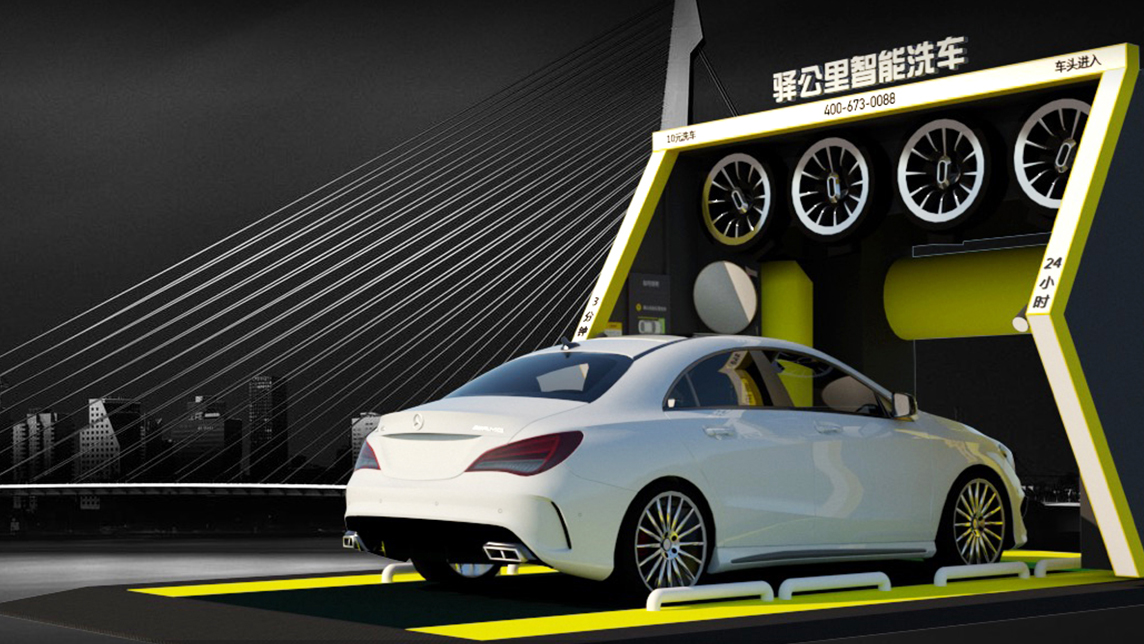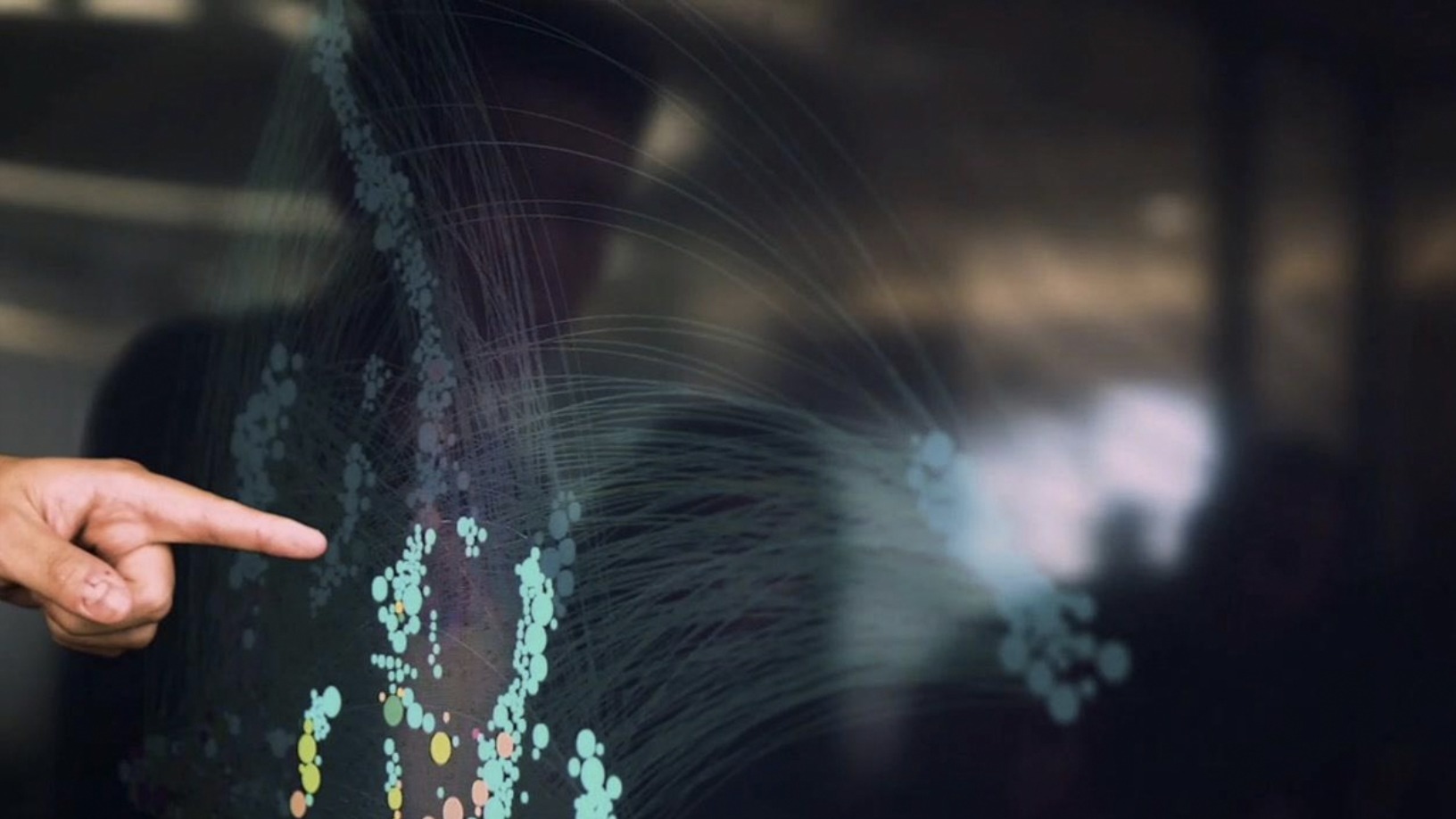If you are driving around Hangzhou, one of China's largest cities, in the southeastern part of the country, there is a high chance that you will see a big yellow machine on almost every corner. For only RMB 10, this machine will wash your car in three minutes. And the best thing about this service is that it is available 24/7.
Yigongli is the Hangzhou-based startup that made this convenient and affordable service possible with its completely automated car wash machines. Users can operate these machines easily and pay for the services with their smartphones.
The startup has already deployed over 365 machines in more than 35 cities, mostly in Hangzhou. Over the next five years, 10,000 more machines will be put into operation across the country.
“The car wash business will be taken over by intelligent and unmanned machines in the coming decade,” predicted Shi Hengzhi, founder and CEO of Yigongli.
Founded in 2013, Yigongli had pivoted several times in its initial two years. It started out by building a SaaS platform for car repair shops. In 2015, it opened the first of 80 brick-and-mortar car grooming and maintenance stores. By 2016, these experiences had helped the startup identify the real opportunity within the car grooming business: the provision of automated car wash services.
Environmentally friendly
At the time, the conventional manual car wash business was facing quite a few problems. First, it takes about 30 minutes to wash a car manually so customers have to wait in line, especially during rush hours. Second, customers had nowhere to wash their cars after hours – late at night and early in the morning. During national holidays, many employees leave their workplaces in the cities and travel to their hometowns or tourist destinations, resulting in a labor shortage which causes the prices of manual car wash services to soar, especially in the bigger cities. Last but not least, the wastewater from car washing, usually mixed with chemicals and oil, can pose threats to the environment.
Shi believes that such problems will only worsen because the number of privately-owned vehicles in China has increased from 140 million in 2015 to 189 million in 2018 while labor cost keeps rising. He thus decided to develop an automatic car wash machine to solve these problems.
Users can activate any Yigongli machine by using their smartphones to scan the QR code on each machine. Once a car is parked properly in the machine, ultrasonic waves are emitted to detect the car's shape and initiate a customised car wash process. The data generated from the car washing will be automatically collected by the machine to fine-tune its algorithms for different car models. This means the more times a specific car model is washed, the better the machine will be able to wash that particular model.
To develop a fully-automatic machine such as Yigongli's, the team had to draw on knowledge from the fields of hardware design, ECO wash, IOT, cloud, among others.
“We really built it from the ground up,” CTO Chen Siyu, an MIT graduate who used to work at Oracle, recalled. Yigongli owns over 40 patents for its proprietary machines and the accompanying support system.
In addition to providing a safe and standardized car wash service, Yigongli uses only one-third the volume of water compared with the amount used by a manual car wash service. The used water can also be reclaimed by Yigongli's machines and processed for reuse.
Eyes bigger market, Alibaba-backed
The startup has made an extra effort to ensure that it will be safe for a car to go through its automatic car wash machine. If users accidentally open the car door or if there is a power cut during the process, the service will be suspended immediately and the cleaning brushes will automatically be retracted to prevent the car in the machine and any person in the vicinity from harm. Users can choose to terminate the car washing process for any reason at any time via the app.
"A car gets washed four times a month on average. The whole market is worth hundreds of billions of RMB," said Shi.
And Yigongli is aiming for an even bigger share of the market.
The company now provides an app to help customers find its nearest machine, operate the machine, pay for services and write reviews about the machine's condition. More features are expected to be added to the app, such as allowing users to enquire online about their traffic violations, providing information about car insurance and second-hand car deals and booking car grooming services.
It came as no surprise when Yigongli secured a round of Series B funding from Alibaba in December 2018. "Unmanned car washing is of high frequency, low price and scalability. That is why Alibaba invested in Yigongli. They saw the potential of Yigongli being a gateway to enter the car grooming industry," Shi said.
In recent years, Alibaba has invested heavily in the car grooming business, a market worth an estimated RMB 1 trillion. The e-commerce giant created a joint venture, New Carzone, in August 2018 in partnership with a local vehicle parts supplier in Hangzhou. With over 600 warehouses across the country, the new online-to-offline platform promises to deliver vehicle parts to over 70,000 car repair shops within a radius of five kilometers in 30 minutes. This new venture signaled Alibaba's official entry into the automotive aftermarket.
"After the funding (from Alibaba), we will cooperate with Yigongli on many levels," said Cai Yongzhi, CEO of New Carzone and Tmall's head of automotive. Tmall, formerly Taobao Mall, is a business-to-
Equipped with high-definition cameras, Yigongli's machines can detect the vehicle identification numbers and license plate numbers of cars that are being washed, a feature "which is paving the road to providing car owners with tailored service in the future," said Cai.













